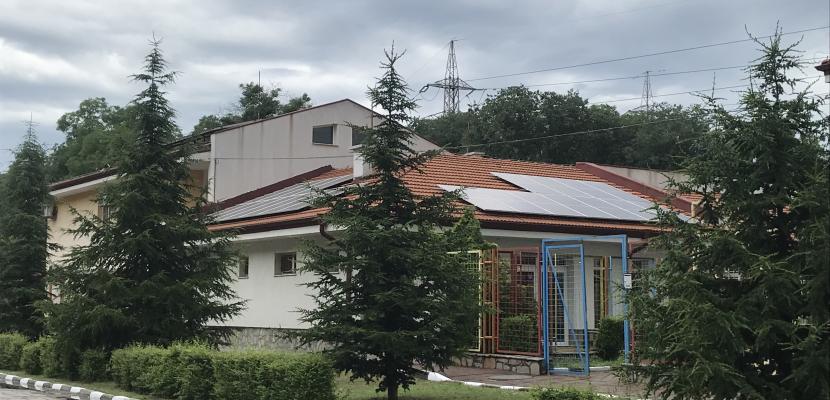
Photovoltaic installations with battery storage in social buildings

About this good practice
Recent sharp rise of energy prices is putting tension of buildings with high concentration of vulnerable consumers, such as the social housing sector. Most of ongoing practises in Bulgaria related to the support of the most vulnerable groups are limited to the provision of short-term financial support without focusing on sustainability matters. There is an urgent need to establish innovative practises and protect end users through renewable energy. PV and battery energy storage hybrids are a key technology option for realizing a sustainable energy supply, as such systems are providing competitive renewable power to cover own needs. Such hybrids are enabling significant increase of the building’s energy self-consumption and self-sufficiency by storing the surplus energy for use during hours with no PV generation. To demonstrate the viability of such technology the Energy Agency of Plovdiv implemented a total of 3 PV + battery storage systems with a total installed power of 26 kWp and 82 kWh of storage capacity within three building with social purpose. The practice demonstrates a model where self-sufficiency increases considerably when battery storage is connected, enhancing prosumer`s autonomy, especially in off-heating season. Thus, any user of such technology can achieve significant cuts of electricity consumption and CO2 emissions, especially in months with high solar radiation. At the end, this is a prerequisite for reducing to minimum the risk of energy vulnerability.
Expert opinion
Energy poverty is rocketing up the political agenda in the face of rising energy bills, and at the same time, the climate crisis is a hot political issues. Regions across Europe are looking for ways to tackle energy poverty without subsidising fossil fuels, while also outing them on track to meet climate commitments. Practices such as this, decentralised installation of solar photovoltaics with a storage system, are models of low-carbon interventions that can work in many regions. Though only a pilot installation, it demonstrates the high potential of decentralised PV for tackling energy poverty. This practice has been prominently featured in Policy Learning Platform activities: you can find out more in the policy brief and the event learnings from our online workshop on energy poverty.
Resources needed
- Project management – 5,000 €
- Executive projects and permission 2,000 € per building
- PV (10 kWp) and 35 kWh storage – 20,800 €
- PV (5.8 kWp) and 12 kWh storage – 11,600 €
Evidence of success
• Social buildings with reduced electricity costs – 3
• Renewable energy produced – 30.3 MWh/year
• CO2 avoided - 24,8 t/year
• Potential financial savings– 6980 €/year
• Payback 7.7 years
Potential for learning or transfer
Through PV+storage hybrids end users can achieve significant share of self-sufficiency, especially notable during the off-heating season and months with high solar radiation. Such type of technical solutions has multi benefits - they generate renewable energy, while cutting onside CO2 emissions and decreasing electricity costs. The produced power is stored locally to be used during off-sun hours. Battery storage can also have other applications in a power network through the provision of ancillary services. Thus, such hybrids may also maximise profit, while reducing energy poverty and achieving improved access to the energy market. This establishes the practise as a viable tool in policy making. Hybrids between PV+battery storage should be included be integrated into the legislation related to energy poverty and vulnerability and used by policy makers. To facilitate the use of battery storage alongside PVs new policy schemes should be adapted promoting an increased self-sufficiency.
